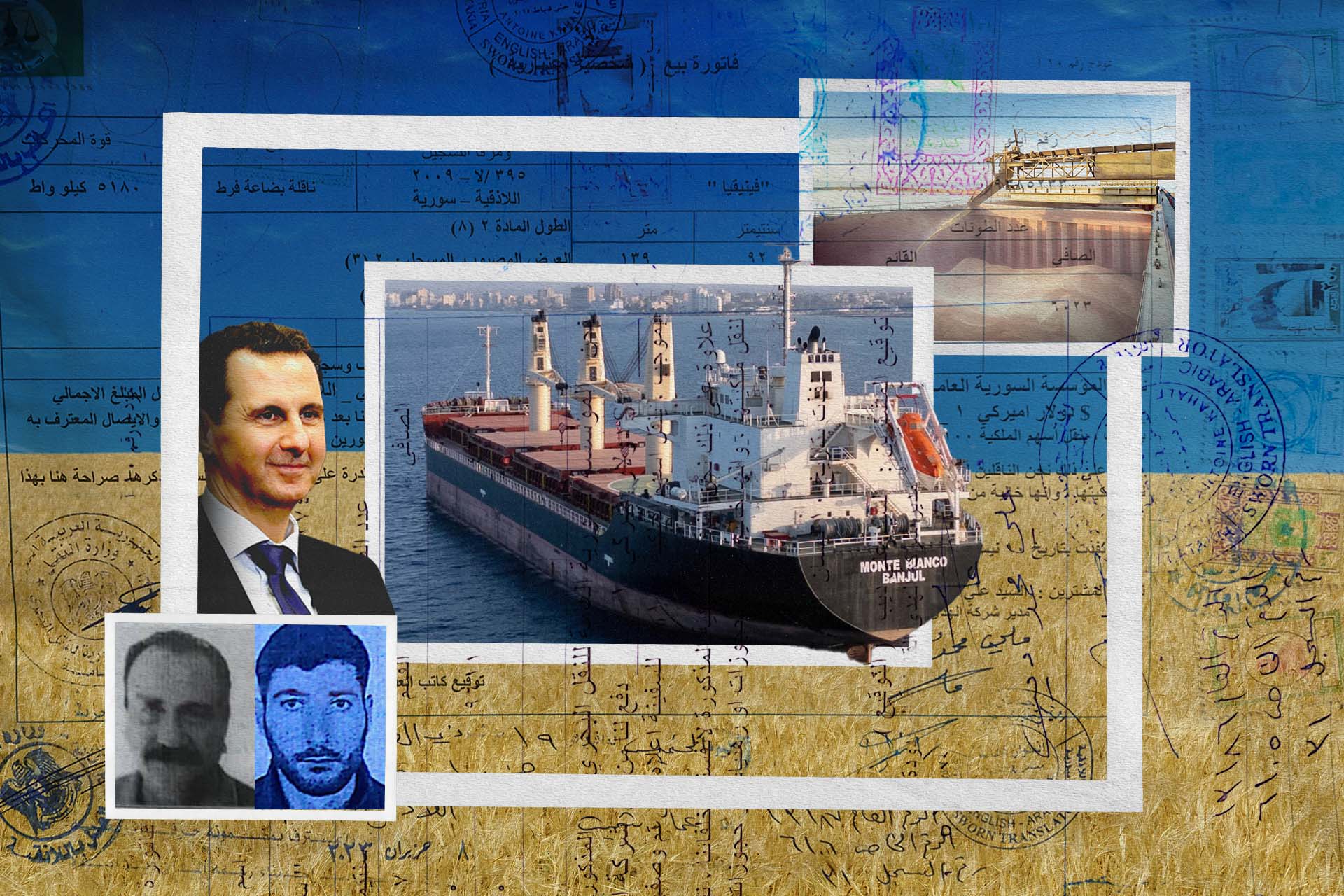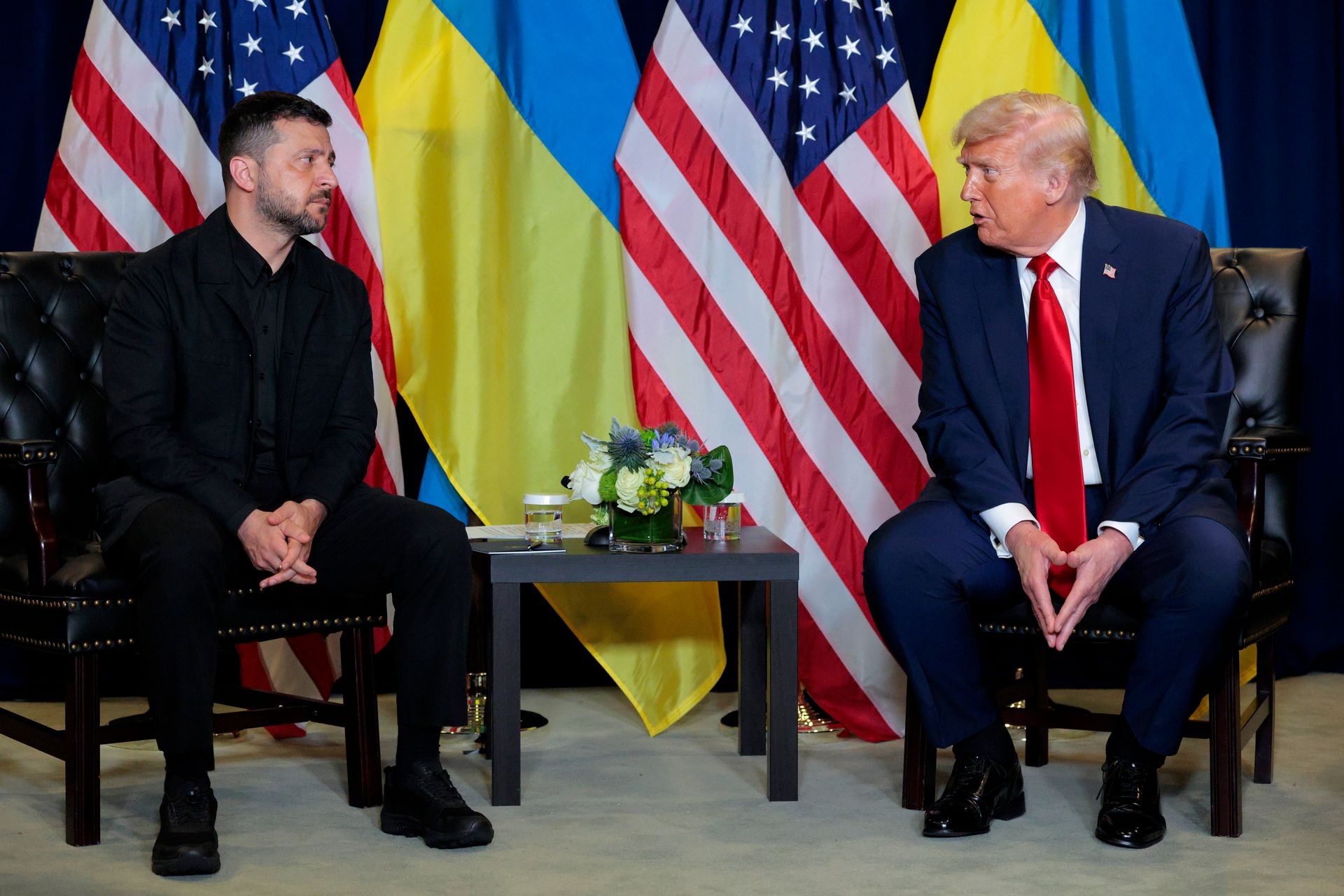From Assad to al-Sharaa — Putin's 'desperate attempt' to retain foothold in the Middle East
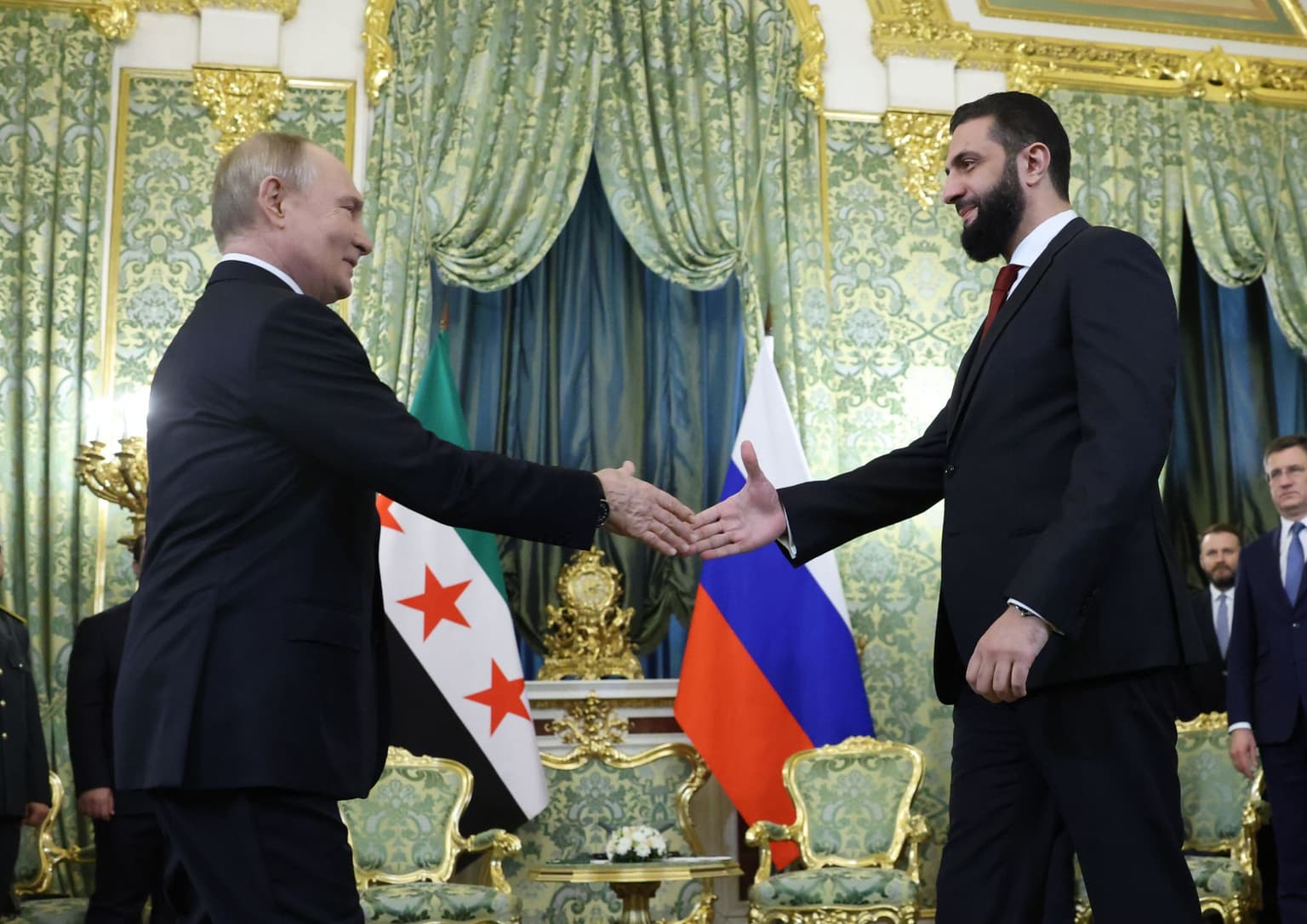
Russian President Vladimir Putin (L) greets Syrian leader Ahmed al-Sharaa (R) during their meeting at the Kremlin, Oct. 15, 2025, in Moscow, Russia. (Contributor/Getty Images)
Russian President Vladimir Putin met with his Syrian counterpart, Ahmed al-Sharaa, in what experts described as the Kremlin's bid to cling to its foothold in the Middle East amid mounting setbacks and waning influence.
The meeting, Russian Foreign Minister Sergey Lavrov said, involved talks on the future of Russia's military facilities — the naval base in Tartus and the Khmeimim air base.
The talks came at a time of visible setbacks for Russia's presence in the Middle East.
Moscow had planned to host a Russia–Arab summit on Oct. 15 but reportedly canceled it after only a handful of leaders confirmed attendance.
Two days earlier, attention turned to Egypt, where world leaders signed a U.S.-brokered peace deal potentially ending the Gaza War between Israel and Hamas.
Moscow was not invited to Sharm El-Sheikh.
Olli Ruohomaki, a Middle East expert at the Finnish Institute of International Affairs, told the Kyiv Independent that Putin's meeting with al-Sharaa "looks like a desperate attempt to keep hold of something that they are losing."
"It's Russia, and particularly Putin, desperately trying to keep a foothold in the region. Syria was their anchor in the Mediterranean," Ruohomaki said.
Moscow's role in post-Assad Syria
Russia's 2015 military intervention in Syria turned the tide of the civil war in Bashar al-Assad's favor, securing Damascus and restoring Moscow as an important powerbroker in the region.
Backed by Iran and Hezbollah, Russian airstrikes crushed much of the opposition, while diplomatic initiatives such as the Astana Process strengthened Russia's hand.
That dominance evaporated in December 2024, when rebel forces led by al-Sharaa, a former al-Qaeda affiliate, toppled Assad in a lightning offensive. Assad fled to Russia, leaving Moscow's long-standing investments and its two Mediterranean bases in question.
Al-Sharaa, formerly known as Abu Mohammad al-Julani, now leads the country — he was named president in January — and has shown pragmatism toward Moscow despite their violent past.
In February, Putin reaffirmed Russia's support for Syria's "unity, sovereignty, and stability."
At their Oct. 15 meeting, al-Sharaa said his administration would respect existing agreements with Russia and explore a new chapter in bilateral relations.
Anna Filipi, a Middle East politics expert with the Association for International Affairs, said al-Sharaa's outreach fits a broader strategy to normalize relations with major powers and rebuild Syria's shattered economy.
"In this sense, pragmatism is what superseded any ideological or past qualms for both Putin and al-Sharaa," she told the Kyiv Independent.
Syria's new balancing act
Al-Sharaa's past as leader of the militant group Hayat Tahrir al-Sham — once labeled a terrorist organization by Moscow — makes the rapprochement particularly striking.
In 2016, Russia vowed to "destroy" the group, calling it "a savage terrorist formation."
Now, Reuters sources say the new Syrian government seeks two key outcomes from Moscow: the extradition of Assad and clarity over the continued presence in Tartus and Khmeimim.
Neil Quilliam, a Middle East expert at Chatham House, said al-Sharaa's visit reflects a pragmatic effort to diversify alliances.
"Meeting with Putin fits with his approach to cultivating ties and shoring up support from a diverse range of countries," Quilliam told the Kyiv Independent. "It also sends a strong signal to former Syrian President Bashar al-Assad and those who continue to support him."
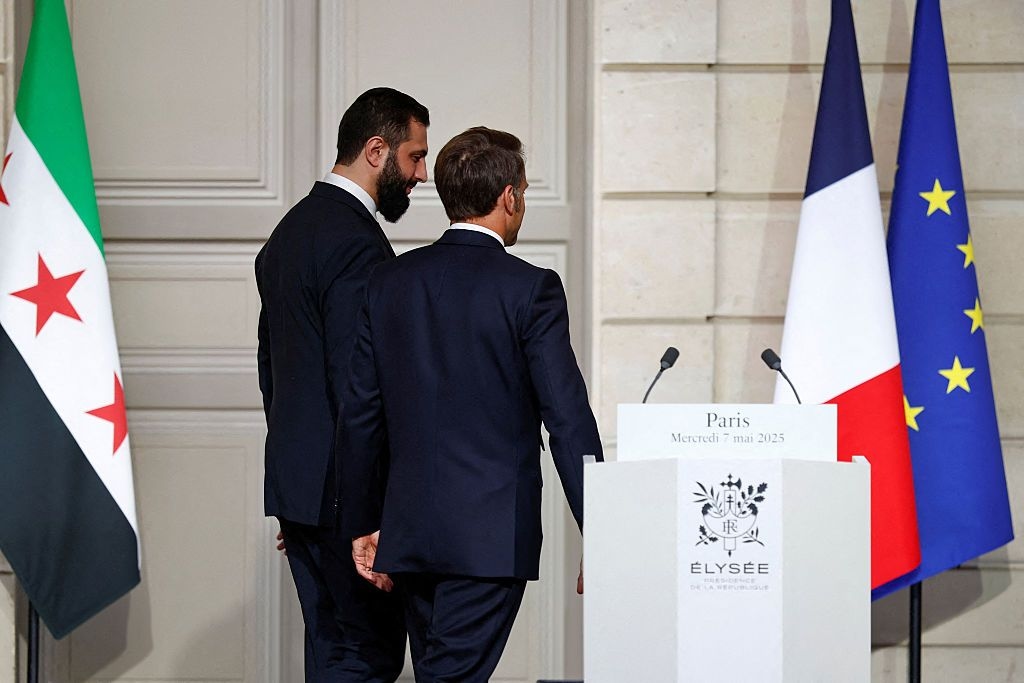
The expert added that while Russia retains control over its bases, its broader influence has diminished.
"There can be no doubt that Russia's influence has declined precipitously, whilst U.S. interests have grown and President (Donald) Trump has prioritised Syria more than ever before," he said.
Al-Sharaa met Trump on the sidelines of the UN General Assembly in New York in September, following earlier talks in Riyadh in May — a sign of his attempt to court both Washington and Moscow simultaneously.
Setbacks for Russia
Russia's weakened standing in the region has become increasingly evident.
On Oct. 13, Moscow was excluded from the high-profile peace summit in Sharm El-Sheikh, where more than 20 world leaders signed a U.S.-brokered Gaza ceasefire.
Lavrov later confirmed Russia was not invited, while analysts said the snub underscored Moscow's declining diplomatic clout.
"It's not a slap in the face — just a reflection that Russia really doesn't have much power (in the region)," Ruohomaki said. "The Arab region, Persian Gulf in particular, they are all Western allies, American allies… Saudi Arabia, Qatar, United Arab Emirates."
Quilliam described the summit as "the Trump show," adding that it "was never going to be a venue where Putin was welcome."
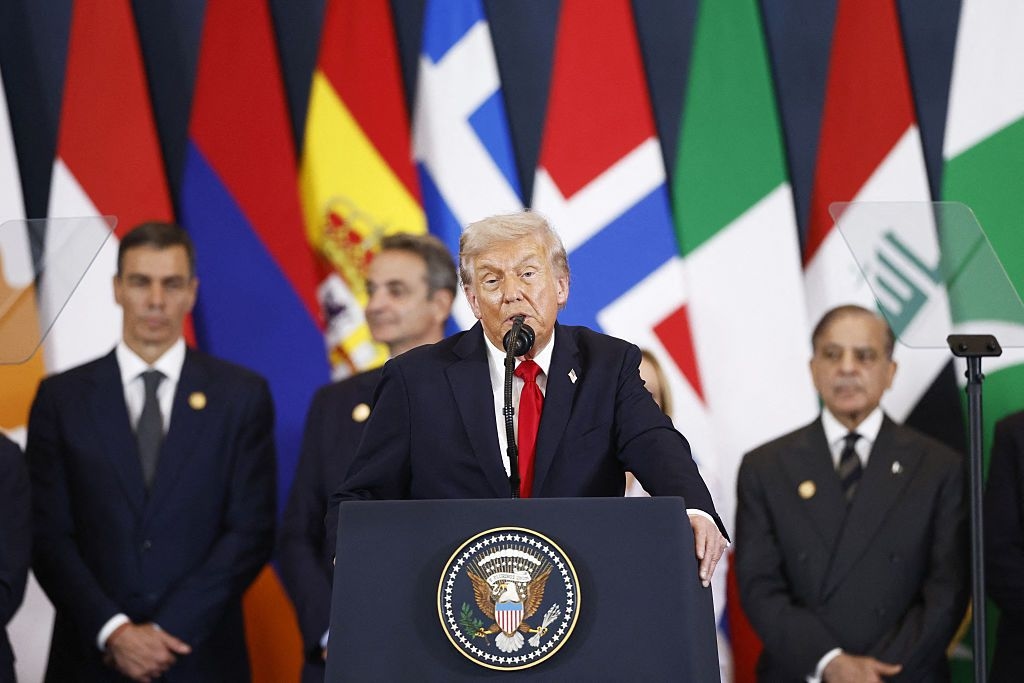
"Russia played no role in the peace deal, and Trump wanted the occasion to bring together all those world leaders who admire him and show their appreciation of his efforts," he said.
Russia's own attempt to host a summit with Arab states was scrapped after most regional leaders declined to attend.
"The Russia — Arab summit was overshadowed by the Gaza peace meeting," Quilliam said.
"All the major Arab states were forced to show to whom they pledge their true allegiance — and it was not Putin."
What comes next
Experts say both Putin and al-Sharaa are acting out of necessity, not partnership.
"They both benefit from good relations," Filipi said.
"Russia wants to keep its access to Tartus naval port by the Mediterranean Sea and to Khmeimim military base close by. Syria, in turn, wants access to Russia's energy and investments to help Syria's devastated economic situation."
David Butter, a Middle East expert at Chatham House, added that al-Sharaa could be looking to Moscow for military supplies and economic assistance.
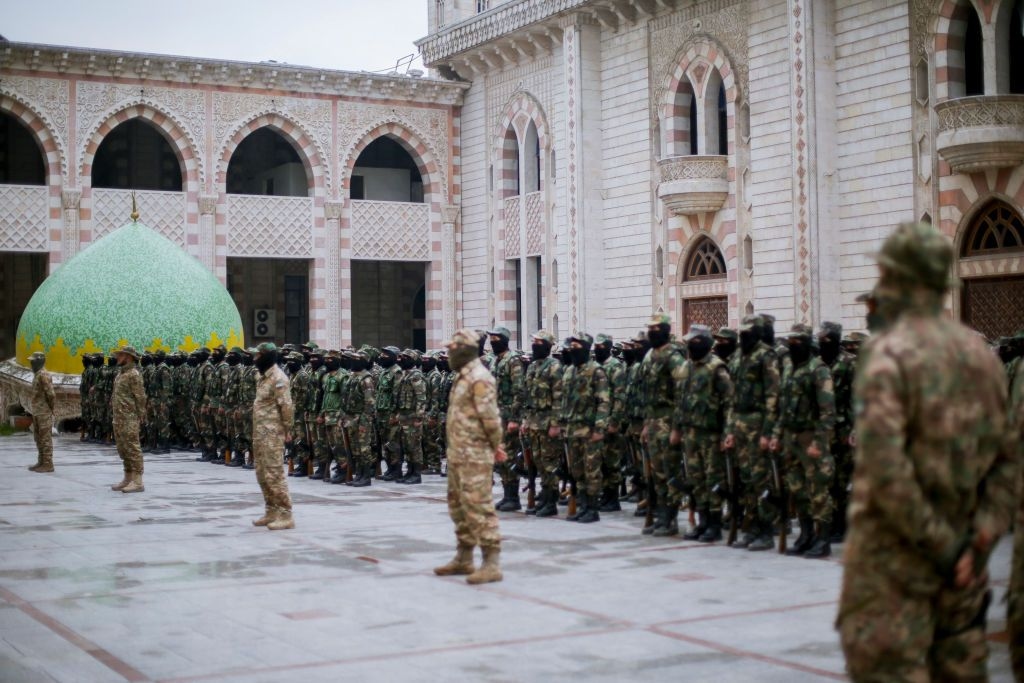
"(Al-Sharaa) may be looking to procure some weapons to enable the Syrian army to operate more effectively — he doesn't have many options other than Russia for this," he said.
"Another issue is the Russian contract to print Syria's new banknotes; also fuel, wheat supplies."
Ruohomaki believes Russia will not be able to expand its military presence in the country.
"I don't think they will expand their presence, but they will not expel them either," he said.
"They are focusing on internal issues in Syria. They will not allow Russia to play the internal politics. Not like the Assad regime. That was a different ballgame, of course."
Note from the author:
Hi, this is Tim. The author of this article. Thank you for taking the time to read it. At the Kyiv Independent, we speak to top experts to bring you accurate, in-depth reporting. We don't have a wealthy owner or political backing. We rely on readers like you to support our work.
If you found this article valuable, consider joining our community today.

